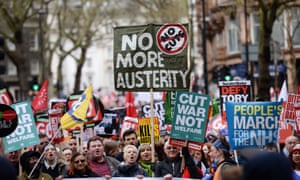Theresa May’s Government is preparing to end the seven-year cap on public sector pay rises but nurses, teachers and others say the Government has to go further and pay back some of the thousands of pounds that have been “pinched” from workers’ wages.
 The nurses’ union will go ahead with a rally outside Parliament on Wednesday and has warned that it will push on with unprecedented industrial action later this year unless Downing Street starts to unwind its austerity clamp-down on public workers.
The nurses’ union will go ahead with a rally outside Parliament on Wednesday and has warned that it will push on with unprecedented industrial action later this year unless Downing Street starts to unwind its austerity clamp-down on public workers.
A spokeswoman for the Prime Minister signalled the change of pay policy on Monday as Conservative MPs continue to come under enormous pressure over the pay clamp and the government struggles to recruit teachers, nurses and prison guards.
“We are listening,” the Downing Street spokeswoman said, insisting that the government “recognised the sacrifices” made by 5 million public sector workers. “We know that many people in the public and private sector feel they are just about managing.”
Larger pay rises could begin next April but the Government has not yet worked out the pace and extent of the changes.
Rehana Azam, the national secretary of the GMB union, warned that it would not be good enough for the government to slowly remove the pay cap, which froze millions of public sector wages in 2011 and has since limited rises to 1%.
“This damaging policy has seen thousands pinched from public sector workers over seven years,” she said. “If real pay rises are now on the cards it will be a huge victory for the GMB’s campaign and for public pressure on the Government, but the devil will be in the detail.”
“All public sector workers must receive proper pay rises – including those not covered by pay review bodies, such as school support staff, council workers and police staff,” she said. “The prime minister will not be able to get away with a sleight of hand on this one – we’re watching very closely.”
“Pay Back Nurses”

Janet Davies, the general secretary of the Royal College of Nursing, said that any pay rise “needs to not only scrap the pay cap for future years but go some way towards making up for lost earnings.”
“If the Government does not scrap the cap then industrial action is on the table. Nursing pay has fallen by 14 per cent in real terms since 2010, now worth £3,000 each year.”
Scotland’s First Secretary Nicola Sturgeon was due to increase the pressure on the Prime Minister on Tuesday by confirming that her administration would lift the pay cap for thousands of public workers in Scotland.
One proposal floated by Whitehall officials was to remove the pay cap over two years, perhaps increasing payments for workers in London, who have fallen most behind their local living costs. Ending the 1% cap for all 5m public sector workers would cost an estimated £4.1bn a year but Chancellor Philip Hammond is expected to resist a quick end to the cap in his Budget later this year.
When the Conservatives lost their majority in this year’s general election Hammond said the Government was “not deaf – we heard a message in the General Election” but he stressed that pay rises had to be funded. About 31% of public sector workers are in the NHS, with another 30% in education and 20% in public administration.
With inflation running at 2.6 per cent, an average nurse on £31,600 a year would receive a rise of £820 without the cap, while a police constable on £28,000 would gain £730.
Steve Gillan, the general secretary of the Prison Officers Association, said prison workers deserved a 5% rise, pointing to the Government’s growing difficulty in recruiting officers. There would be “unprecedented exodus” by prison guards unless there was a significant rise, Gillan warned.
by Peter Wilson
The post Politics: As Marches Begin, Govt to Offer Pay Rises appeared first on Felix Magazine.
No comments:
Post a Comment